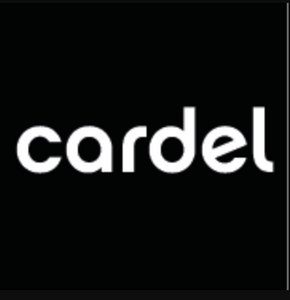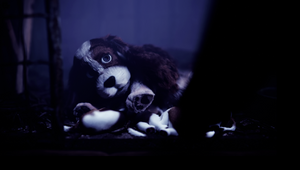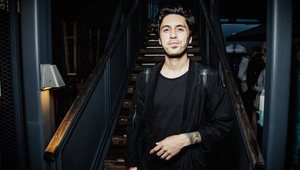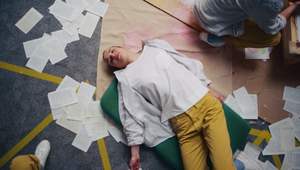
The Directors: Piotrek Matejkowski

Piotrek Matejkowski is an acclaimed director of shorts, music videos and commercials. A graduate of the Faculty of Multimedia Directing at the Academy of Fine Arts in Łódź, and the Multimedia Direction course at the Royal College of Art in London. Represented by Cardel and Match&Spark.
Name: Piotrek Matejkowski
Location: Warsaw
Repped by/in: Cardel, Match&Spark
Awards: KTR (Ad Creators Club) 2 x Gold, 1 x Silver, 2020 PLMVA Grand Prix Best Music Video 2018 , 2020 Berlin Music Video Awards 2018 (3x Nomination) Los Angeles Cinefest 2018 (Finalist) KTR 2x Gold, 2x Silver, 4x Bronze, 2016
What elements of a script sets one apart from the other and what sort of scripts get you excited to shoot them?
I feel that the most important thing is always a story that the script is telling. And inside each story there should be something that makes it exciting and original. It can be a twist, a style of storytelling or different forms of expression. I love scripts that aren’t obvious and leave some place for interpretation. Also I’m a big fan of stories about serious issues told in a light way. Maybe it’s more present in feature films and in music videos, but it can also be found in commercial projects.
How do you approach creating a treatment for a spot?
I always think about what are the best ways to surprise the client and reader. Firstly, I look for the best visual language and general look & feel. Then I move into my research, through my research I start to get a stronger picture of what I need to write in the treatment. And finally it's just a lot of work. :)
If the script is for a brand that you're not familiar with/ don’t have a big affinity with or a market you're new to, how important is it for you to do research and understand that strategic and contextual side of the ad? If it’s important to you, how do you do it?
It’s super important! But my research is just normal. I look around through the brands visual content and their ways of communication. Then I research similar companies and surroundings.
For you, what is the most important working relationship for a director to have with another person in making an ad? And why?
I have one, most important rule: The whole process of making an ad (or any other project) should be fun for all people involved. I mean, it’s always hard work, but if it’s still exciting and fun it will influence the final video in a good way.
What type of work are you most passionate about - is there a particular genre or subject matter or style you are most drawn to?
For me the style or subject doesn’t really matter because I believe that you can find your own feel for every brand. I mean that’s the hardest but most satisfying thing in the commercial work, to find the best and most interesting way for every brand. So actually I like challenging stuff.
What misconception about you or your work do you most often encounter and why is it wrong?
I really don’t know. Maybe sometimes clients would like me to promise that on set we will do more shots or scenes.
Have you ever worked with a cost consultant and if so how have your experiences been?
Once, and it was a quite easy and simple conversation.
What’s the craziest problem you’ve come across in the course of a production – and how did you solve it?
We had to set up a Hindu train station for a beer ad. It was in Thailand. So during scouting we found a perfect spot, it was an abandoned train station, we needed to transport a train carriage there, the scene was taking place inside and outside of the carriage. Also, we needed to dress the station so that it looked like it was in the middle of India. Together with the art director we put lots of animals: chickens, ducks, goats; some portable kitchen stands and many more things like flags etc. Finally, in post production, we changed the landscape in a distance from normal Thai land to mountains similar to Hindu Kush.
How do you strike the balance between being open/collaborative with the agency and brand client while also protecting the idea?
To be honest I usually don’t have problems with that. I mean, at the beginning it was a big issue that provoked lots of struggling, but a couple of years ago I discovered that when you are really open to listen to everyone, talk through their concerns and you find a solution together then the whole process becomes easier and more reasonable.
What are your thoughts on opening up the production world to a more diverse pool of talent? Are you open to mentoring and apprenticeships on set?
Actually I already did some mentoring because I was a lecturer in a project called 'School of Music Videos'. I had a group of 15 great people that I had to lead through each stage of bringing a music video to life. Beginning with a story and treatment, pitching it with the band, organising the shoot, working on set, editing and post production. It was a great lesson for me as well and a lot of fun. So I’m totally in when it comes to bringing diverse talents to filmmaking.
How do you feel the pandemic is going to influence the way you work into the longer term? Have you picked up new habits that you feel will stick around for a long time?
Of course it changed a lot, especially in terms of safety, social distance and taking care of our health in general. It influenced the way that we are communicating with each other, mostly through video calls. As, nowadays, clients and agencies are not present on the set so we need to have everything covered. A lot of trust is needed on both sides, but if there is, it usually pays off a lot!
Your work is now presented in so many different formats - to what extent do you keep each in mind while you're working (and, equally, to what degree is it possible to do so)?
I think that we are quite used to it now. We usually aren’t surprised when there is a need to put our shot in a horizontal, square or vertical format. But, to be honest, it really depends on a particular shot. Sometimes it’s a good possibility but there are many occasions when it just won’t work, it would just have a bad influence on the main format.
What’s your relationship with new technology and, if at all, how do you incorporate future-facing tech into your work?
I’m always open and interested in such possibilities. I worked in all of these fields and I must say that it really brings new opportunities but problems as well. I really like projects where you can work with AI and search possibilities of the best ways to use it. So I’m usually super excited to work with different & new technologies.
Which pieces of work do you feel really show off what you do best – and why?
I would like to show two music videos and two commercials. First one called 'Flary' is a music video for a band called Pro8l3m. 'Flary' is a narrative story about a guy who desperately wants to kill himself. The text of the song and the scenario of the music video were created in parallel and were mutually inspired. The band liked the topic of suicide loop very much, so after the first meeting, we developed the rest of the story. In the beginning, we did not know how to sell this story without losing the viewer's interest and not revealing the whole plot in the first minute of the clip. Finally, at one meeting, we came up with a montage idea that's unveiling all stories in parts. The song is about losing yourself in the circle of life between love and rejection.
Second, a music video for a band called Kamp!, 'Wiedziałem, że tak będzie' is about the emotions we experience when feeling music in a live performance.
Third piece is a commercial for Asahi brand - Lech beer. It was my Thai experience that I mentioned above. Really great journey!
Finally, the last one is a comedy commercial for Apple Premium Reseller. It’s a mix of good script, great casting, shots planned very carefully and Japanese music.
And a bonus! A short story for a promotion of my friends book called 'Pyromaniac’s Manual'. Once you decide to literally set things on fire, Pyromaniac’s Manual will guide you safely through the process. The best fire is a controlled one and getting hurt is not a success. Don’t forget to collect your trophies (such as selfies with “victims”), though.










